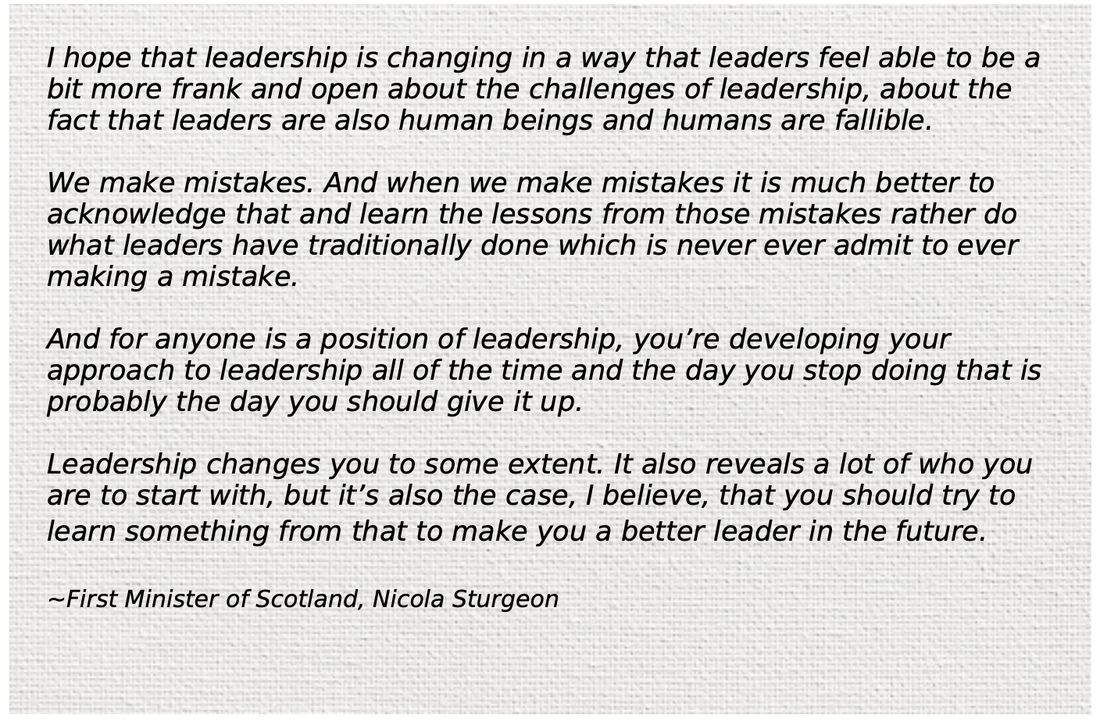|
The terrain of leadership is much more difficult to navigate nowadays compared to times in the past. Leaders are constantly faced with deeper uncertainty, fast-paced change, and problems that are more complex than ever before.
And because of this, the hierarchical, control and compliance structures of the past no longer serve organizations as they once did. Effective leadership in today’s ever-changing world means being open and receptive to new ideas, criticisms, and different perspectives. The best leaders no longer rely on their position of power. Instead they choose to focus on consistently deepening their ability to influence those they lead. They influence through compassion, empathy, support, modeling, transparency, and open communication. It’s easy for leaders to default to their position of power, but as best-selling author and Harvard professor, Dr. John Kotter says, “Leadership is very much related to change. As the pace of change accelerates, there is naturally a greater need for effective leadership.” Many would suggest that leadership hasn’t transformed itself fast enough to keep up with the changing times, but what does this actually mean? What should good leadership now look like given the pace of change and uncertainty in the world? Nicola Sturgeon’s words from the quote above have never rung truer when looking at the current state of leadership and what should be expected of any leader wanting to create lasting change and impact. To influence change requires taking full accountability of one’s actions as a leader. And as Nicola says: “Leaders make mistakes and when we make mistakes it is much better to acknowledge that and learn the lessons from those mistakes rather do what leaders have traditionally done which is never ever admit to ever making a mistake.” If you are a leader (or aspiring leader) reading this, how are you holding yourself accountable for your actions? To what extent are you willing to own your mistakes? To what extent do you challenge yourself to grow and learn every day? It’s one thing to take courses, go to leadership workshops, and attend leadership conferences. It’s a completely different playing field though, when leaders take action to consistently apply their learning, in real time, with those who they serve. And to continue to reflect on what is working and what they need to further develop. Leadership is tough. It is a grind. But to those leaders who are willing to do the deep internal work needed to continually grow and learn, I commend you. The world needs you more than ever. Thanks for reading.
0 Comments
Leave a Reply. |
AuthorKAUST Faculty, Pedagogical Coach. Presenter & Workshop Leader.IB Educator. #RunYourLife podcast host. Archives
September 2022
|
- Welcome
- All Things Teaching and Learning
- The Aligned Leader Blog
- Consulting and Coaching Opportunities
- My TED X Talk
- My Leadership Blog
- Run Your Life Podcast Series
- How PYP PE with Andy Has Helped Others
- Good Teaching is L.I.F.E
- The Sportfolio
- Example Assessment Tasks
- PYP Attitude Posters (printable)
- Publications

 RSS Feed
RSS Feed
